
Bake Yourself a Happy Holiday
Grab your whisk and take a breath of sweet, buttery air. It’s baking season!
Meditation and prayer come in many forms, and any avid baker--whether they're a pro or a home baker like me--will tell you that they are at their most focused, most content, and most mindful when they’re mixing, measuring, scooping and pouring. During the holidays, the spirituality of baking comes into full blossom, as the lessons of the season take shape in cookies, bars, cakes, and pies. Here are 5 such lessons I’ve experienced in my kitchen.
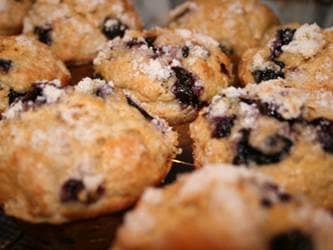
Lesson 1: Stick to What's Real
Looking over a new recipe, I'm often reminded that cookies in their simplest form are just 4 ingredients: butter, sugar, eggs, and flour. Sure, vanilla, salt, nuts, dried fruit, and baking powder/soda are important, but to me, the quality of any baked good always comes down to the quality of those 4 most basic ingredients.
The more “real” the ingredients are (first step: banish the margarine!), the more important it becomes to treat them right. Softening butter to room temperature really helps when you’re ready to cream it together with the sugar. There’s no more beautiful sight than a farm-fresh egg transforming into fluid ribbons in a dough or batter. And knowing that the blueberries that went into these blueberry-banana muffins were still warm from the sun when I baked them made them all the more delicious.
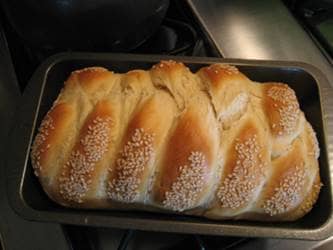
Lesson 2: Learn from Your Family
When you bake a lot of cookies, you learn to avoid at all costs a dreaded protein called “gluten” that emerges when flour has been worked too much. This habit explains why I never was any good at baking bread – while gluten makes for tough, icky cookies, it’s essential to the soft, chewiness of a good loaf. But I say “never was” because I now can bake a challah bread with no anxiety whatsoever. Last year, my father’s cousin Sylvia invited me into her kitchen to teach me the family recipe that she made weekly when her kids were growing up. She showed me how to knead, how hot to get the water, how long to let the dough rise, and how delectable an afternoon around the oven with family can be.
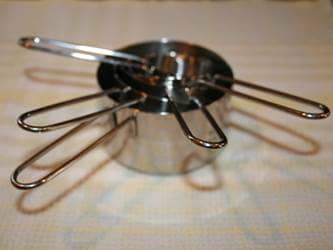
Lesson 3: Be Patient, Be Mindful
As I shared in my 2008 New Year’s Resolution video, patience does not come naturally to me. Maybe that’s why I’m drawn to baking. Baking is an exercise in precision, and if you do not take the time to measure carefully, scoop out uniform blobs of cookie dough, or wait for butter or cream cheese to be fully at room temperature, you’re more likely than not to have either a stiff or gloppy mess rather than a lovely batch of baked goodness. Baking is a challenge—with sweet results, but then again, most challenges are.
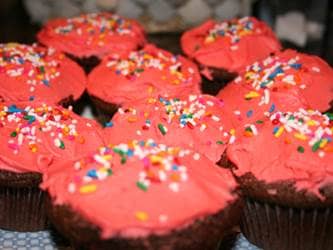
Lesson 4: Embrace the Sweetness
Not to point out the obvious, but desserts are sweet. Cookies, cakes, bars, and pies excite us not only because they carry the promise of a literal sugar rush, but also because they are figuratively sweet. Falling into that wonderful category of “treat,” baked goods mark special moments, from birthdays to celebrations of the first snow of the year. I often bake something when it’s cold and gray outside, just so I can smell buttery sweetness on the air and remember that the cold and dark can’t get in. The owner of the fabulous Rosie’s Bakery in Boston has written that a perfect brownie should “bring a glow to your cheeks and a smile to your lips.” I don’t think she meant because brownies are sweet, I think she meant because brownies are sweet.
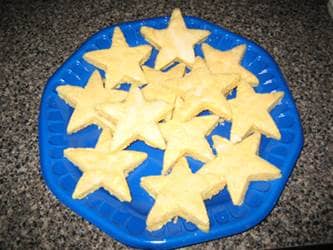
Lesson 5: Connect with the Community
Baked goods are meant to be shared. After all, most cookie recipes make multiple-dozen pieces, and even though I’d often like to, eating a cake all alone is simply impractical. The most gratifying thing any baker can experience is when a friend or family member craves a special favorite from your kitchen. Baking for others is a gift in itself, and the look on my cousin Brian's face whenever I'd show up with a plate of these lemon-cornmeal "star bars" was worth its weight in gold.



Tidak ada komentar:
Posting Komentar